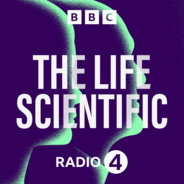Fat, sugar, salt - we all know we should eat less of them, and take more exercise, but as a nation with an ever expanding waistline we are becoming increasingly overweight.Jim al-Khalili talks to Professor Susan Jebb, the UK's authority on obesity, who has spent much of her career trying to help us put those good intentions into practice.Her challenge is not for the faint hearted. When she first got interested in obesity, as a research scientist, rates were already on the rise. Yet no one took the problem seriously. Today, with over sixty percent of adults overweight or obese, Susan remains unwavering in her commitment to ensuring we do.As Professor of Diet and Population Health at Oxford University and Chair of the government's Responsibility Deal Food Network, she wants all of us and the food industry to improve the nation's health by translating the science of what we eat into practice.And health is what it's all about. Obesity now poses such a danger that it's been dubbed the 'new smoking'.Produced by Beth Eastwood.

Wissenschaft & Technik
The Life Scientific Folgen
Professor Jim Al-Khalili talks to leading scientists about their life and work, finding out what inspires and motivates them and asking what their discoveries might do for us in the future
Folgen von The Life Scientific
348 Folgen
-
Folge vom 21.04.2015Susan Jebb on nutrition
-
Folge vom 14.04.2015Nigel Shadbolt on the worldwide webSir Nigel Shadbolt, Professor of Artificial Intelligence at Southampton University, believes in the power of open data. With Sir Tim Berners-Lee he persuaded two UK Prime Ministers of the importance of letting us all get our hands on information that's been collected about us by the government and other organisations. But, this has brought him into conflict with people who think there's money to be made from this data. And open data raises issues of privacy.Nigel Shadbolt talks to Jim al-Khalili about how a degree in psychology and philosophy lead to a career researching artificial intelligence and a passion for open data.
-
Folge vom 07.04.2015Stephanie Shirley on computer codingAs a young woman, Stephanie Shirley worked at the Dollis Hill Research Station building computers from scratch: but she told young admirers that she worked for the Post Office, hoping they would think she sold stamps. In the early 60s she changed her name to Steve and started selling computer programmes to companies who had no idea what they were or what they could do, employing only mothers who worked from home writing code by hand with pen and pencil and then posted it to her. By the mid-80s her software company employed eight thousand people, still mainly women with children. She made an absolute fortune but these days Stephanie thinks less about making money and much more about how best to give it away. Producer: Anna Buckley.
-
Folge vom 31.03.2015Jane Francis on AntarcticaJust twenty years ago, the British Antarctic Survey (BAS) would not allow women to camp in Antarctica. In 2013, it appointed Jane Francis as its Director. Jane tells Jim Al-Khalili how an intimate understanding of petrified wood and fossilised leaves took her from Dorset's Jurassic coast to this icy land mass. Camping on Antarctic ice is not for everyone but Jane is addicted, even if she does crave celery and occasionally wish that she could wash her hair. Fossils buried under the ice contain vital clues about ancient climates and can be used to check current computer models of climate change. The earth can withstand a great range of temperatures: Antarctica was once covered in lush forest. But the question is: can humans adapt? As the ice caps melt, sea levels will continue to rise. And, says Jane, the time to start planning for that is now.
